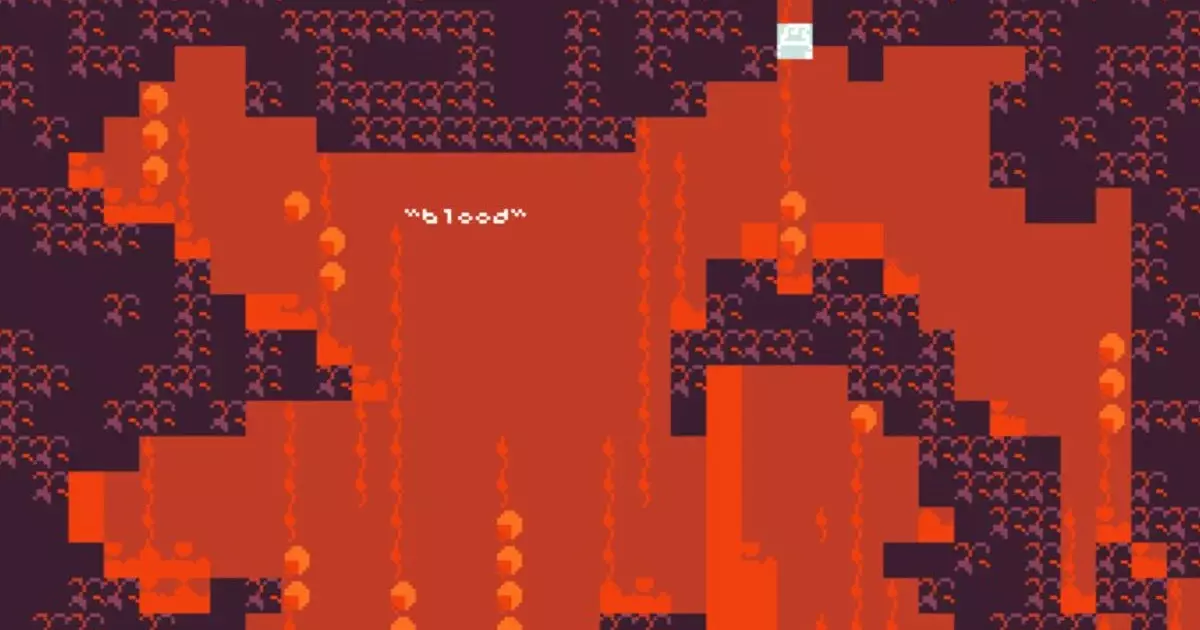In a world fascinated with structured gameplay and quantifiable achievements, indie developer Droqen takes a daring leap into chaos with their upcoming title, *The End Of Gameplay*. Following on from the cryptic allure of *Starseed Pilgrim*, this new venture promises an experience that challenges the conventional notion of what a video game should be. The phrasing alone—that players are invited to “kill gameplay”—is provocative and enticing, setting the stage for a game that might be as much an art piece as it is an interactive experience.
Droqen’s previous work, *Starseed Pilgrim*, was characterized by its eerie and poetic exploration of minimalism and block-building mechanics, but many players, including myself, found it difficult to grasp its essence fully. It seemed designed for those who relish in obscure exploration rather than those looking for a conventional gaming experience. With *The End Of Gameplay*, Droqen is clearly interested in doubling down on this enigmatic approach, encouraging players to engage with the game not through traditional objectives but rather through an introspective voyage into the very nature of gameplay itself.
What Does it Mean to “Kill Gameplay”?
Droqen’s statement that they wish to “kill gameplay” prompts us to consider what gameplay means in modern gaming culture. Traditionally, gameplay involves rules, goals, and mechanics that drive player interaction. Yet, Droqen seems to propose an exploration beyond these definitions—a challenging endeavor that raises more questions than it answers. The implications are challenging and thrilling: will players find joy in the absence of gameplay? Can a game devoid of traditional structures still be considered a game?
By asserting that this title will focus on “all the parts that nobody told me they cared about,” Droqen shifts attention to elements that often go overlooked. This becomes an invitation for players to engage with the game mechanistically but also emotionally, fostering an environment where subjective experience overshadows objective success. The game could offer a reflection on how we engage with gameplay in general—questioning the desire for defined objectives and highlighting the beauty of wandering through uncharted territory.
A Collective Experience in Indie Development
*The End Of Gameplay* is not only a personal project for Droqen but part of a broader trend within the indie gaming community of packaging short, exploratory works into cohesive experiences. Droqen’s initiative mirrors other indie milestones that have curated collective artistic expressions, such as Terry’s anthology and UFO 50. This movement underscores the growing recognition of games as a form of artistic dialogue rather than a mere entertainment medium.
Moreover, this trend also emphasizes the value of diverse narratives in an era flooded by mainstream blockbusters focused primarily on monetization and streamlined experiences. *The End Of Gameplay* stands as a testament to how indie games can provoke thought and emotional engagement, challenging players to rethink their assumptions about play itself. It creates space for experimentation, allowing game developers to express a range of narratives and ideas that might not find acceptance in conventional gaming avenues.
Charting New Territory in Perception
Despite the excitement surrounding *The End Of Gameplay*, it also bears the weight of risk. Droqen acknowledges the precariousness of this endeavor, grappling with the urge to create art while facing the potential alienation of broader audiences who crave conventional gameplay experiences. The fear of overshadowing the joy of discovery with complexity or abstraction is palpable. Yet, therein lies the beauty of such projects; they instill a sense of community among those willing to traverse this avant-garde approach to gaming.
The upcoming release, scheduled for the “full flower moon in May,” suggests a harmony with nature’s cycles, perhaps reflecting the game’s thematic exploration of untamed pathways and experience. This rhythm of time speaks to the organic nature of Droqen’s vision—a poetic gestation of what gaming can potentially offer if one strays from the rigid conventions that define so much of the industry.
With *The End Of Gameplay*, we may witness a movement away from traditional measures of success, as players embark on a journey not to conquer, but to contemplate. Through this means of unconventional engagement, Droqen is not just crafting a game; they are launching a philosophical inquiry into the essence of gaming itself.

